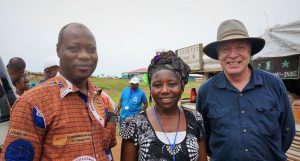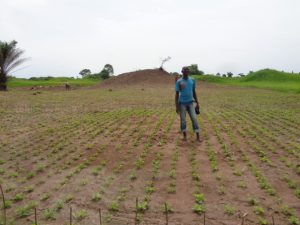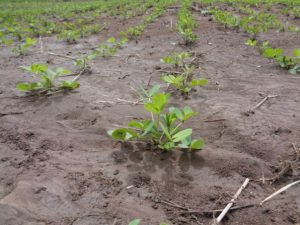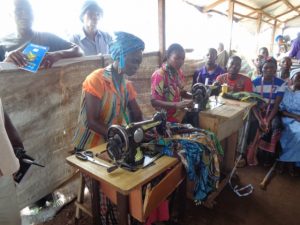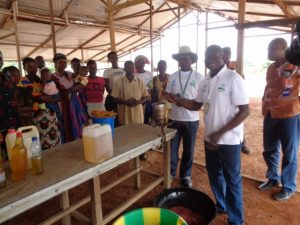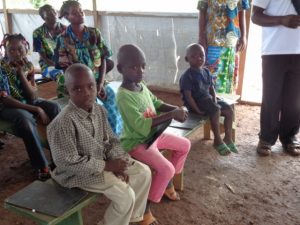I was very encouraged to hear the refugees from the Central African Republic at the Inke Refugee camp express their strong desire to become self-sufficient in food and to have means to earn an income. That is a change from what we heard when we visited one year ago.
The first weekend in May Dave Husby, Director of Covenant World Relief, made his first visit to Congo. Together with Pastor Bofio (the CEUM’s leader in initiatives to respond to the refugees) and Marta Klein, we visited the Inke refugee camp. The UNHCR chief in nearby Gbado-Lite told us that there over 15,000 registered refugees inside the camp with maybe another 10,000 outside. He encouraged the CEUM and CWR to do all they can to help the refugees become more self-sufficient, explaining that the global refugee crisis is really straining the HCR’s and World Food Program’s (WFP) resources so starting even next year they are going to have to reduce the food distributions.
After checking in with Congo’s National Refugee agency and the UNHCR we were welcomed to visit the camp. On the way to the camp, 50 kms S of Gbado-Lite, we passed several hand pumps in villages. These were the India Mark II hand pump. If I remember the story correctly, this pump was developed in India in 1986 by a Swedish engineer working with the Hindustani Covenant Church. This simple yet reliable pump is now used in communities around the world. Some call it the “Covenant pump.”
As we approached the camp itself we observed large fields of cowpeas and manioc. The refugees are working hard to provide their own food, an encouraging sign.
In the camp we visited women who are making soap from palm oil and caustic soda, the sewing class, the group extracting peanut oil and a school for the deaf.
There were over 40 in the sewing class and they only had 3 sewing machines to work on. The students also pointed out that even once they learn to sew, what happens next to enable them to sew and earn a living? How and where will they get a sewing machine and other needed supplies?
Those who had learned how to extract the oil from peanuts expressed the same basic issue. They only have one mill to grind the peanuts. Yes, the oil is good and has an excellent selling price, but they need equipment to do this themselves once the class is over.
We were very encouraged to learn of the school for the deaf which was started through the initiative of a fellow deaf refugee. About 15 students ranging from early elementary kids to a couple women are in the class where they are learning sign language. Excellent.
Following all these visits and a visit to the health center we had a meeting with about 100 leaders of the refugees. They expressed their deep desire for becoming self-sufficient. We listened and responded by encouraging them to work with the existing refugee camp structure. The CEUM will do the same, interacting with the UNHCR and other NGOs involved to select opportunities for involvement. We are deeply grateful for CWR’s passionate and encouraging support of this significant ministry to the refugees.
